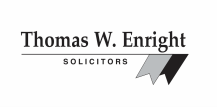If you have gone "sale agreed" on your house, you will want to progress the sale as quickly as possible.
The first thing you should do is contact your solicitor. Your solicitor will need to review your title deeds immediately in order to prepare a contract for the sale of your house and take full instructions from you on the details. You should also ensure that your auctioneer or estate agent send what is called the "sales advice note" to your solicitor as well as the solicitor for the purchaser. The sales advice note includes details about you and the purchasers, your respective solicitors, the price, the proposed closing date, whether contents are included, and other relevant matters.
There are several pieces of information and documentation that your solicitor will need and you should start getting them together now so that they will be ready even before a sale is agreed, in case any issues arise that need to be resolved.
YOU WILL NEED TO GET THE FOLLOWING:
The first thing you should do is contact your solicitor. Your solicitor will need to review your title deeds immediately in order to prepare a contract for the sale of your house and take full instructions from you on the details. You should also ensure that your auctioneer or estate agent send what is called the "sales advice note" to your solicitor as well as the solicitor for the purchaser. The sales advice note includes details about you and the purchasers, your respective solicitors, the price, the proposed closing date, whether contents are included, and other relevant matters.
There are several pieces of information and documentation that your solicitor will need and you should start getting them together now so that they will be ready even before a sale is agreed, in case any issues arise that need to be resolved.
YOU WILL NEED TO GET THE FOLLOWING:
1. Details of where your title documents are. If your title deeds are with a bank, provide the name of the bank and the account number.
2. A Local Property Tax (LPT) printout showing local property tax paid to current year end, as well as payment of the Household Charge (for 2012 only) and the band under which the property has been registered for LPT.
3. A certificate of exemption or discharge from the Non-Principal Private Residence Charge (NPPR). This charge applied from 2009 to 2013 and either a discharge or certificate of exemption must be furnished to all purchasers. The certificates are issued by the local authority in which the property is situated. Follow the links here for Offaly, Laois, Tipperary and Galway. If the charge needs to be paid it is done through the NPPR Online Payment System.
5. Details of your water and drainage supply.
6. If you have a septic tank on the property, evidence of its registration.
7.If you are or ever have been married, a copy of your state marriage or civil partnership certificate (and copy of separation agreement or divorce, if applicable).
8. BER Certificate showing the energy rating on your home. All vendors are legally required to provide this.
9. Details of any building work you have done with copies of any planning permissions and certificates of compliance with planning permission and building regulations, or certificates of exemption, from your architect or engineer.
10. If your property is in a managed development, contact details for the management company/managing agents, and receipts for service charges.
11. If the property is let, a copy of the letting agreement and evidence or registration with the Residential Tenancies Board.
12. Details of any contents included in sale.
13. Your PPS Number(s).
14. Photographic identification such as passport(s) or drivig licence(s)
15. A utility bill, bank statement or official letter from Revenue, the Department of Social Protection dated within the last 3 months to prove your address.
2. A Local Property Tax (LPT) printout showing local property tax paid to current year end, as well as payment of the Household Charge (for 2012 only) and the band under which the property has been registered for LPT.
3. A certificate of exemption or discharge from the Non-Principal Private Residence Charge (NPPR). This charge applied from 2009 to 2013 and either a discharge or certificate of exemption must be furnished to all purchasers. The certificates are issued by the local authority in which the property is situated. Follow the links here for Offaly, Laois, Tipperary and Galway. If the charge needs to be paid it is done through the NPPR Online Payment System.
5. Details of your water and drainage supply.
6. If you have a septic tank on the property, evidence of its registration.
7.If you are or ever have been married, a copy of your state marriage or civil partnership certificate (and copy of separation agreement or divorce, if applicable).
8. BER Certificate showing the energy rating on your home. All vendors are legally required to provide this.
9. Details of any building work you have done with copies of any planning permissions and certificates of compliance with planning permission and building regulations, or certificates of exemption, from your architect or engineer.
10. If your property is in a managed development, contact details for the management company/managing agents, and receipts for service charges.
11. If the property is let, a copy of the letting agreement and evidence or registration with the Residential Tenancies Board.
12. Details of any contents included in sale.
13. Your PPS Number(s).
14. Photographic identification such as passport(s) or drivig licence(s)
15. A utility bill, bank statement or official letter from Revenue, the Department of Social Protection dated within the last 3 months to prove your address.



